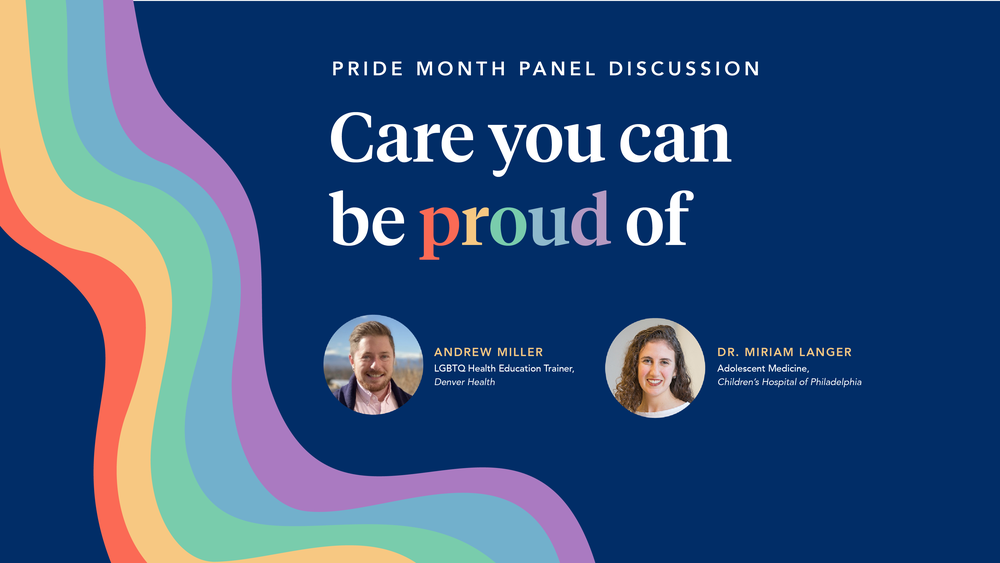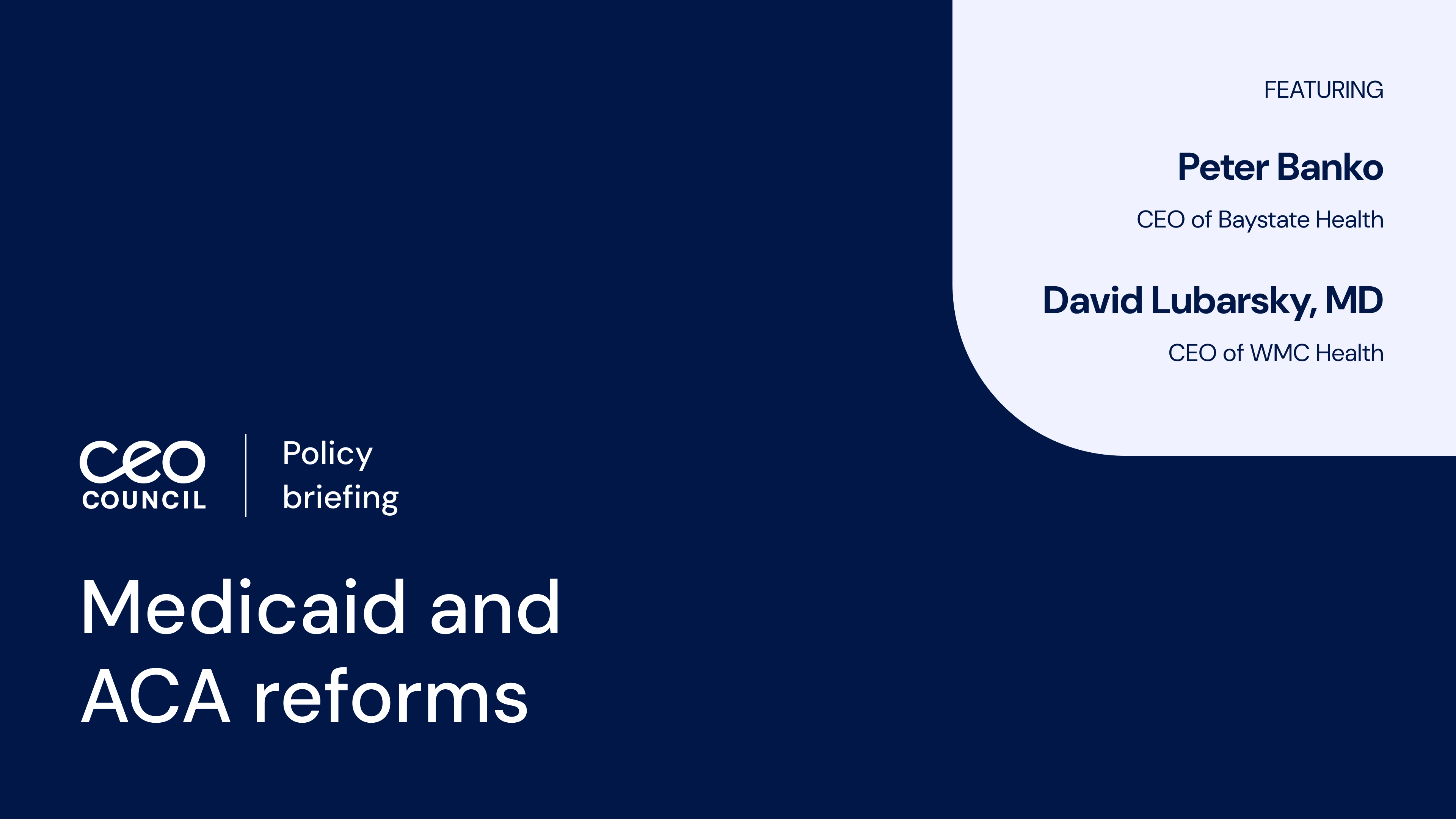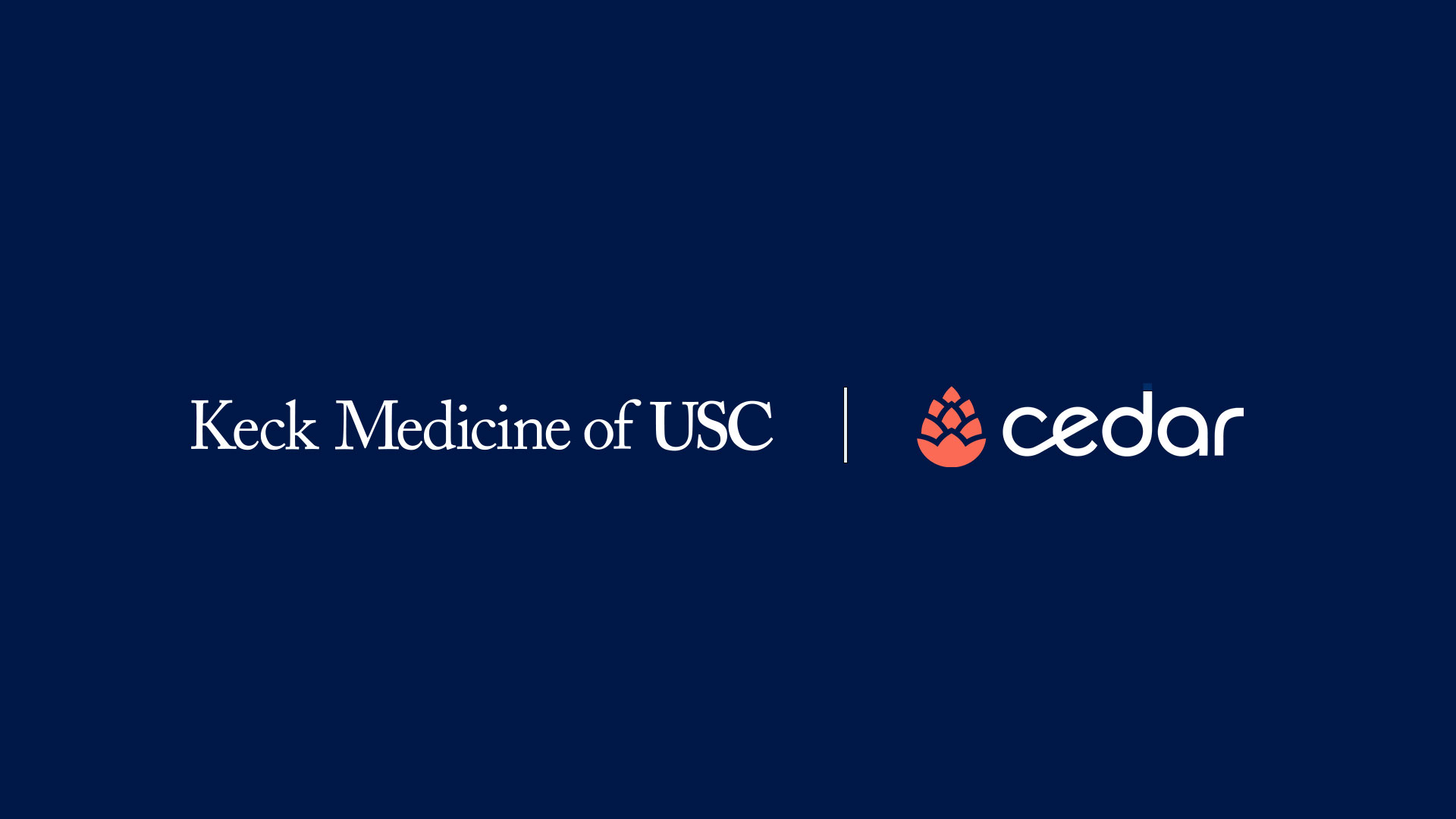June is Pride Month, and Cedar is passionate about joining in the voices uplifting and celebrating the LGBTQIA+ community and their contributions to the world. As part of our Pride Month activities at Cedar, we recently hosted an important virtual discussion about reducing the disparities experienced by members of the LGBTQIA+ community.
Alex Vollmer, Training and Content Operations Lead at Cedar, spoke with Andrew Miller, who provides training, consultation, and capacity building assistance through Denver Health’s LGBTQ Health Services Department; and Dr. Miriam D. Langer, a board-certified pediatrician specializing in Adolescent Medicine at Children’s Hospital of Philadelphia (CHOP) and an Assistant Professor of Pediatrics at the University of Pennsylvania.
“Over the last several years, we’ve seen many wins for queer people in the United States,” Vollmer said in his opening remarks. “On the other hand, we see a renewed attempt at further disenfranchising some of the most vulnerable members of our community. There’s still a lot of work to be done, and healthcare is just one of the many spaces where queer people seem to be fighting an uphill battle. That’s what we’re here to talk about today: how do we transform healthcare so that we can all receive and provide care that we can be proud of?”
He took a moment to provide some useful terminology for the audience:
- LGBTQIA+: an acronym used to describe people who identify as lesbian, gay, bisexual, transgender, queer, intersex, asexual, and other sexual and gender minorities
- Gender identity: a person’s inner sense of being a girl/woman/female, boy/man/male, having a nonbinary identity, or identifying with no gender
- Sex assigned at birth: the sex assigned to an infant, most often based on the infant’s anatomical and other biological characteristics
- Transgender: a person whose gender identity and sex assigned at birth do not correspond
Next, he cited a grim statistic: LGBTQIA+ youth are 2 to 3 times more likely to attempt suicide than their non-LGBTQ peers, yet a 2018 article in the Journal of Adolescent Medicine from Stephen T Russell noted that young people who could use their chosen name at school, home, and work experienced 71 percent fewer symptoms of severe depression and a 65 percent decrease in suicidal attempts. “What steps can providers take to give as affirming an experience as possible to trans and otherwise queer patients and community members?” he asked.
Dr. Langer cited a 2016 academic article, saying, “It’s not being transgender that comes with depression and anxiety,” she said, “but it is everyone else’s external pressure and non-affirmation that is the cause. This is why it’s so important for all of us to be allies, and really to just see kids as kids—not as boys or girls.”
Miller concurred: “When we affirm youth to be who they are, we see them shine and we see them be able to be kids. For myself—as a trans adult and someone who works a lot with trans youth—I can’t control what happens at home, but when we show kids, with our actions and our words, ‘We care about you and you’re an expert in yourself, and we’re here for you,’ we see the trust start to build. They recognize that there’s nothing wrong with who they are.”
What gender-affirming care means
Next the panelists delved into what affirming care looks like, sounds like, and feels like for LGBTQIA+ youth.
In her practice, Langer said that she builds rapport with patients by normalizing conversations around gender and pronouns. “Bringing this to every patient encounter is really important, and not just when you’re specifically addressing the needs of the LGBTQIA+ population,” she said. “This should be standard, especially in pediatrics, when sometimes patients haven’t come out to their providers or to any adult in their life. It’s important to create that safe space, and it normalizes it for all the cisgender patients, too.”
Noting that 15 states have proposed bills to limit or ban gender-affirming care in trans youth, Vollmer asked Dr. Langer to explain the meaning of “gender-affirming care,” as well as the long-term effects, if any, of things like puberty blockers.
First, Langer said that “it’s really important to note that gender-affirming care can look different for each patient. There’s no one size fits all, there’s no right or wrong way to transition. Each patient has their own gender journey—and that can include as much (or as little) interaction with the medical system as they need.” She also explained the key types of transition, including social, legal, medical, and surgical, and the implications of each. And she noted that puberty-blockers are indeed reversible, and have been safely used by endocrinologists for decades.
Miller said that he appreciated that Langer had spoken of a controversial subject by “bringing the science into it,” because, he said, “this often turns into a political issue about trans bodies and non-binary bodies, where we are not actually listening to the medical providers who prescribe these medications.”
The impact of COVID-19 on the LGBTQIA+ population
Pivoting to the pandemic, Vollmer asked the guests to talk about how the past year may have further impacted queer people who may be suffering from mental health issues amid isolation.
“We saw elevated rates of substance use across the board,” said Miller, “and higher rates of folks reporting depressive symptoms and anxiety symptoms.” However, telehealth also became one of the silver linings of the pandemic: “We had more new patients during COVID, because folks actually felt comfortable in their own house, making an appointment,” he said. “We saw more people actually making appointments and keeping appointments, and we saw this to be doubly true for our mental health providers. It’s a lot harder not to show up for a mental health session when all you have to do is call in.”
Wrapping up the conversation, Vollmer said that he wished to end the conversation on a high note: “What progress has been made over the last several years that has you both the most excited for the future of providing affirming care to LGBTQIA+ folks?”
“One thing that I think is really important is Dr. Rachel Levine’s appointment to the Biden administration,” said Langer. “Just that example of representation [of the] LGBTQIA+ community is amazing for our patients to see.”
For Miller, the growth of affirming care programs has been especially meaningful. “The more that health care systems build programs specific to providing affirming care, the more accessible it will be,” he said. “And amazing people like Dr. Langer are really putting time into IRB [Institutional Review Board]-approved research. That means that we’re going to be able to take even better care of queer communities in the years to come.”
Happy Pride, everyone!



